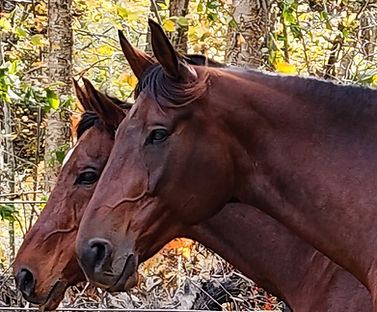Words to Ride By
- Laura Claman
- Jun 18, 2019
- 2 min read
One of the books I refer back to time and time again is Dressage Formula by Erik F. Herbermann. His training methods and philosophies aren’t just for dressage riders. The first edition came out in 1980 – 39 years before I write this. The combination of human and horse doesn’t change over time even though there are always new training fads: clickers, wands, games and so forth. While these “new” styles can be effective, there are timeless truths. Page 11 of the second edition I own is full of just some of these truths.

“Erik F. Herbermann: (My thoughts in red)
REFLECTIONS I
MLXLS
-Armed with theory, practice becomes meaningful… through practice, theory becomes fulfilled.
- Does the musician work the violin? Of course not! We too should always endeavor to ‘play’ the horse, then it will work for us.
- A sizeable portion of the riding task lies in coming to grips with oneself. (It’s not just years of experience; it’s years of self-reflection.)
- Every master has his horse.
-Rider’s tact and feel cannot be taught… it is for each individual to develop these within himself. (Learning the art of riding is not for everyone, nor is it the instructor’s responsibility alone.)
- Dressage is the fundamental obedience training… for the rider!’
- As we come to a deeper understanding of the horse’s psyche, the more we discover how dependent we are on the horse’s generosity. (The prey animal allows the predator to alight on their backs.)
- We should be particularly respectful of school horses, though they are often common creatures: it is upon their patient backs that we are lead to higher levels of horsemanship. There is always much to be learned from any and every horse. (There are those riders that feel a horse is beneath them (figuratively). How wrong they are.)
- The horses are not bent on ‘doing us in’, we can only do ourselves in because of poor attitudes, or inexperience.
- Riding has to do with the nature of the horse, and not our whimsical preconceptions or pet theories.
- All that glitters is not classical riding. (The sadness of the horse that never gets out of the ring.)
- We should endeavor always to remain students of the horse; a learning process that is never finished. (Never, ever)
- The line between very right, and very wrong, can be disconcertingly thin!
- For the true horseman no equestrian task is too menial.
- The challenge of dressage is not necessarily in having the best moving horse, but rather to get every horse we ride to move as well as it possibly can.
- Patience…”

